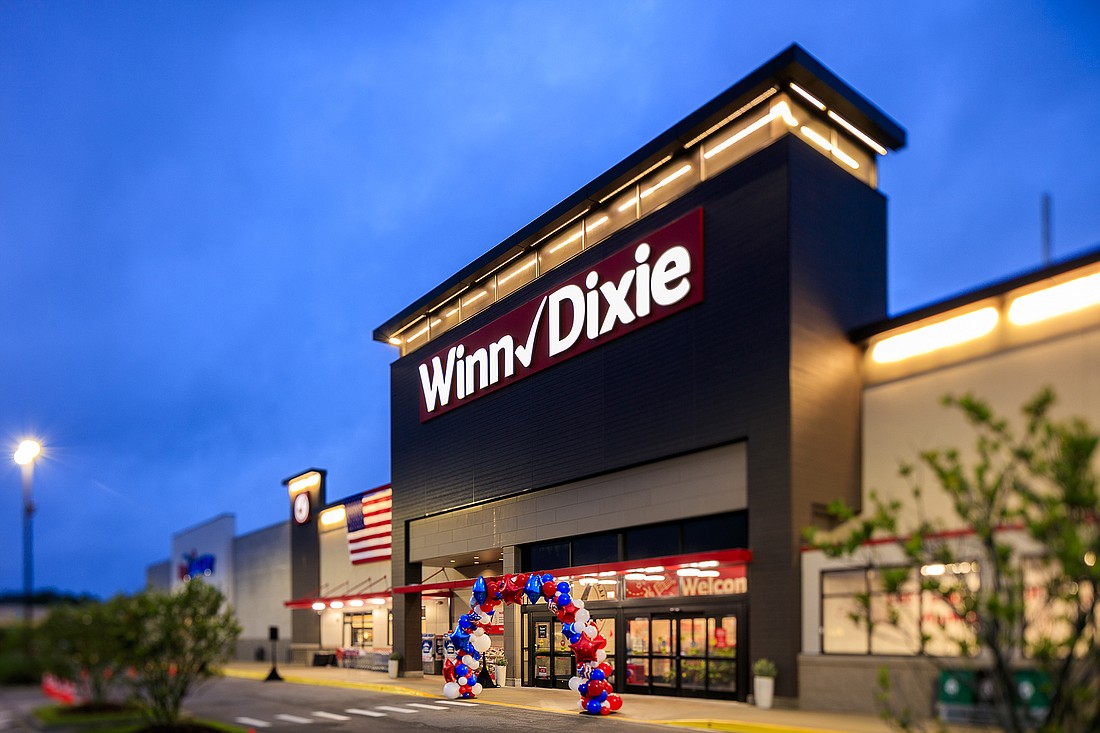
Southeastern Grocers Inc. continued to have big sales increases in the third quarter, according to an updated registration statement for its pending initial public offering.
The Jacksonville-based parent company of Winn-Dixie and three other supermarket chains said in the Nov. 20 filing that comparable-store sales (sales at stores open for more than one year) jumped 16.2% in the third quarter.
That's down from a 21% gain in the second quarter but still a big increase, as grocery stores benefit from consumers eating more at home during the COVID-19 pandemic.
Southeastern Grocers didn't provide more financial details for the third quarter but the filing said total sales in the first three quarters of the year rose 16.6% to $7.4 billion.
And after losing $116.2 million in 2019, the company had a net profit of $235.1 million in the first nine months of 2020.
The company operated 540 stores at the end of the third quarter but has plans to sell 121 of those, including all stores operating under the Bi-Lo brand.
The sales would leave Southeastern Grocers with 419 stores under the Winn-Dixie, Harveys and Fresco y Mas banners as of Sept. 30.
However, the company opened four new Winn-Stores supermarkets Nov. 11, including one in Jacksonville in the Mandarin South Shopping Center at 11700 San Jose Blvd.
The updated filing does not give more details on the IPO.
The company has not said how many shares will be sold or who the current owners are who will be selling shares.
Southeastern Grocers went through a prepackaged Chapter 11 bankruptcy reorganization in 2018 that resulted in a group of creditors receiving the company’s stock in exchange for debt.
However, court documents did not specify who received the stock and became owners of the company.